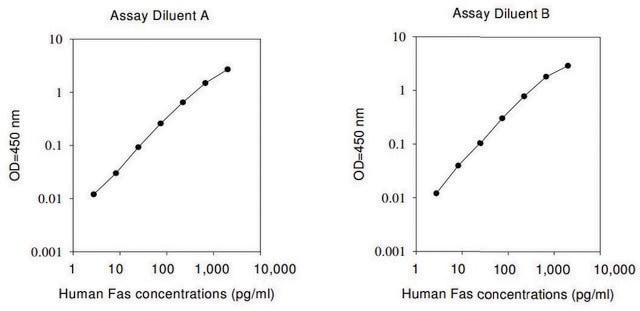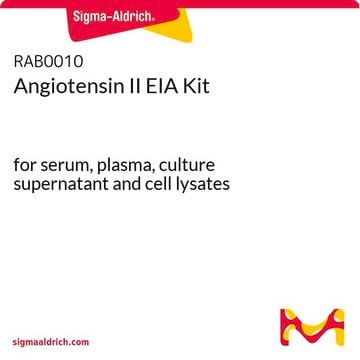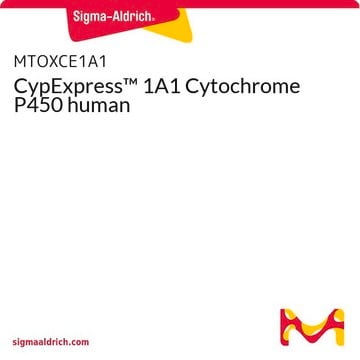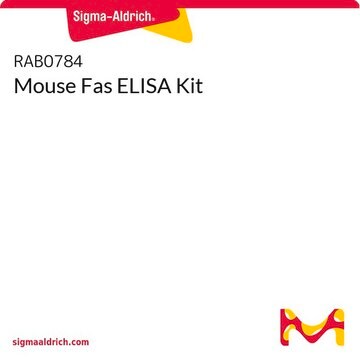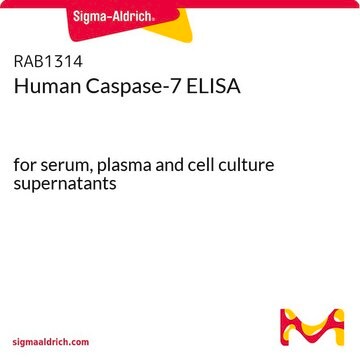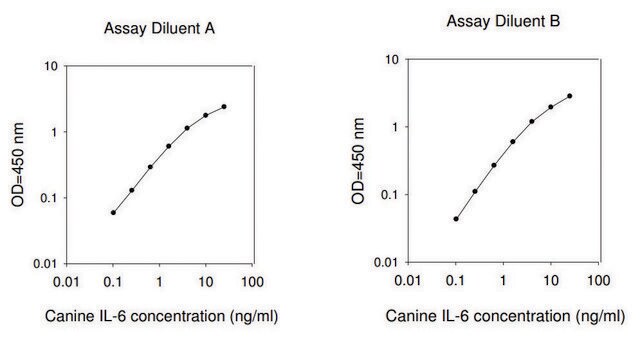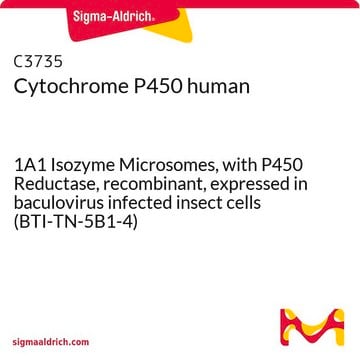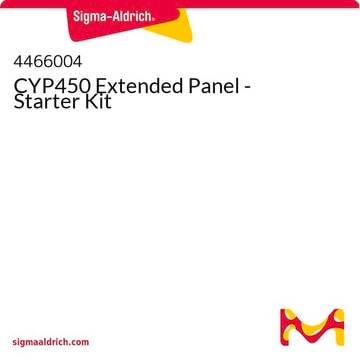Alle Fotos(2)
Wichtige Dokumente
RAB0178
Human Fas Ligand ELISA Kit
for serum, plasma, and cell culture supernatants
Synonym(e):
FasL
Anmeldenzur Ansicht organisationsspezifischer und vertraglich vereinbarter Preise
Alle Fotos(2)
About This Item
UNSPSC-Code:
41116158
NACRES:
NA.32
Empfohlene Produkte
Speziesreaktivität
human
Verpackung
kit of 96 wells (12 strips x 8 wells)
Methode(n)
ELISA: suitable
capture ELISA: suitable
Aufnahme
sample type plasma
sample type serum
sample type cell culture supernatant(s)
assay range
inter-assay cv: <12%
intra-assay cv: <10%
sensitivity: 2 pg/mL
standard curve range: 1.37-1000 pg/mL
Nachweisverfahren
colorimetric
Versandbedingung
wet ice
Lagertemp.
−20°C
Angaben zum Gen
human ... FASLG(356)
Allgemeine Beschreibung
The Human Fas Ligand ELISA (Enzyme-Linked Immunosorbent Assay) kit is an in vitro enzyme-linked immunosorbent assay for the quantitative measurement of human Fas Ligand in serum, plasma, cell culture supernatants and urine.
Immunogen
Recombinant Human Fas Ligand
Anwendung
For research use only. Not for use in diagnostic procedures.
Please refer to the attached General ELISA KIT Procedure (sandwich, competitive & Indirect ELISA)
Please refer to the attached General ELISA KIT Procedure (sandwich, competitive & Indirect ELISA)
Biochem./physiol. Wirkung
Binding of Fas Ligand (FasL) to Fas receptor triggers apoptosis in Fas-bearing cells. FasL has the ability to kill T cells and activate B cells which leads to down-regulation of the immune response. The mechanism of Fas induced apoptosis involves recruitment of pro-caspase 8 through an adaptor molecule called FADD (Fas-associated protein with death domain) followed by processing of the pro-enzyme to active forms. These active caspases then cleave various cellular substrates leading to eventual cell death. FasL is also involved in AGE (advanced glycation end-product)-mediated apoptosis in human retinal ARPE-19 cells, suggesting its role in diabetic retinopathy. Changes in the activity of FasL suppress normal apoptosis, leading to abnormal survival and growth of tumor cells. Mutations in the FasL gene causes autoimmune lymphoproliferative syndrome (ALPS).
Sonstige Hinweise
A sample Certificate of Analysis is available for this product.
Please type the word sample in the text box provided for lot number.
Please type the word sample in the text box provided for lot number.
Kit-Komponenten auch einzeln erhältlich
Produkt-Nr.
Beschreibung
SDB
Signalwort
Warning
H-Sätze
P-Sätze
Gefahreneinstufungen
Met. Corr. 1
Lagerklassenschlüssel
8A - Combustible corrosive hazardous materials
Hier finden Sie alle aktuellen Versionen:
Besitzen Sie dieses Produkt bereits?
In der Dokumentenbibliothek finden Sie die Dokumentation zu den Produkten, die Sie kürzlich erworben haben.
O Micheau et al.
The Journal of biological chemistry, 274(12), 7987-7992 (1999-03-13)
Trimerization of the Fas receptor (CD95, APO-1), a membrane bound protein, triggers cell death by apoptosis. The main death pathway activated by Fas receptor involves the adaptor protein FADD (for Fas-associated death domain) that connects Fas receptor to the caspase
Yin Li et al.
International journal of clinical and experimental pathology, 8(9), 11915-11920 (2015-12-01)
To investigate the relation of Fas and Fas ligand (FasL) protein expression with carcinogenesis and metastasis of cardiac carcinoma. Immunohistochemistry was used to detect Fas and FasL protein expression in 64 cardiac carcinoma tissue samples and 20 normal gastric tissue
W C Powell et al.
Current biology : CB, 9(24), 1441-1447 (1999-12-23)
The Fas ligand/Fas receptor (FasL/Fas) system is an important mediator of apoptosis in the immune system where the juxtaposition of cells expressing the cell-surface ligand induces the apoptotic pathway in Fas-expressing lymphocytes. The FasL/Fas system has also been shown to
M R Alderson et al.
The Journal of experimental medicine, 181(1), 71-77 (1995-01-01)
A significant proportion of previously activated human T cells undergo apoptosis when triggered through the CD3/T cell receptor complex, a process termed activation-induced cell death (AICD). Ligation of Fas on activated T cells by either Fas antibodies or recombinant human
Çağman Tan et al.
The Turkish journal of pediatrics, 57(2), 141-145 (2015-12-23)
Defects in genes that have role in apoptotic pathways result in development of Autoimmune Lymphoproliferative Syndrome (ALPS) and ALPS related disorders. Germline and somatic FAS mutations, FASL and CASP10 mutations constitute other genetic defects in ALPS. Patients who fulfill ALPS
Unser Team von Wissenschaftlern verfügt über Erfahrung in allen Forschungsbereichen einschließlich Life Science, Materialwissenschaften, chemischer Synthese, Chromatographie, Analytik und vielen mehr..
Setzen Sie sich mit dem technischen Dienst in Verbindung.